Melancholy suicide. – This is connected with a general state of extreme depression and exaggerated sadness, causing the patient no longer to realize sanely the bonds which connect him with people and things about him. Pleasures no longer attract.
EMILE DURKHEIMWhen morals are sufficient, law is unnecessary; when morals are insufficient, law is unenforceable.
More Emile Durkheim Quotes
-





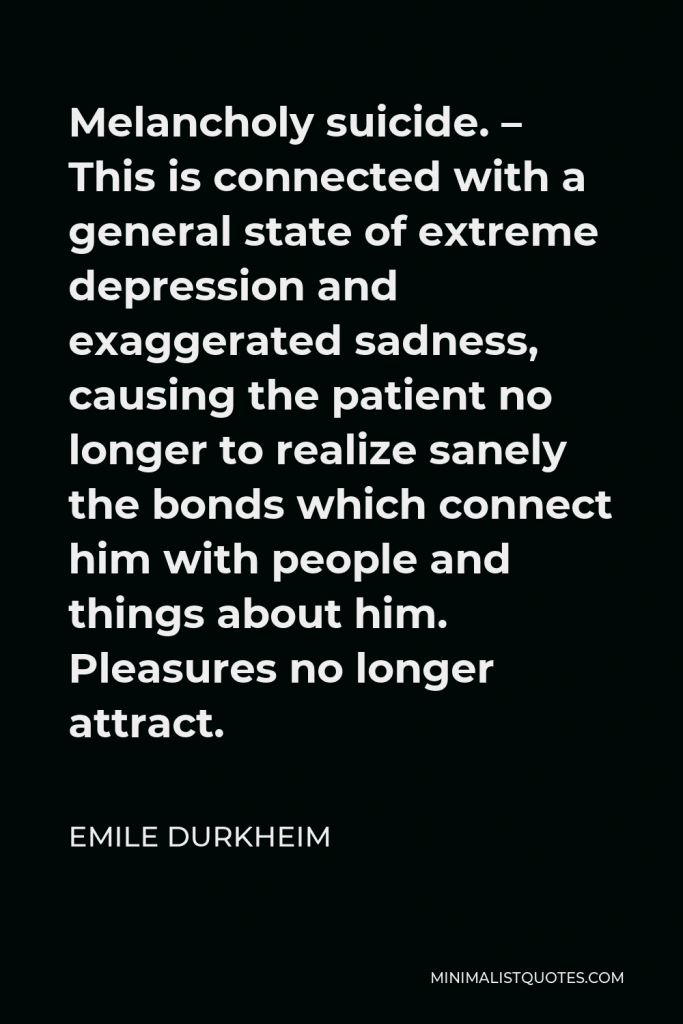

-





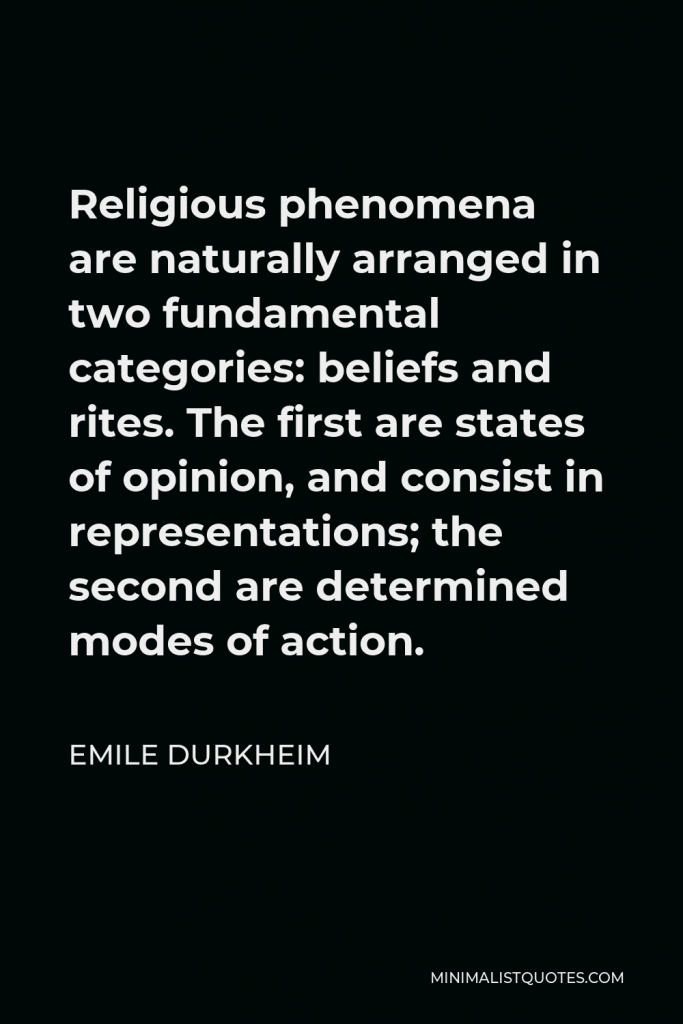

Religious phenomena are naturally arranged in two fundamental categories: beliefs and rites. The first are states of opinion, and consist in representations; the second are determined modes of action.
EMILE DURKHEIM -





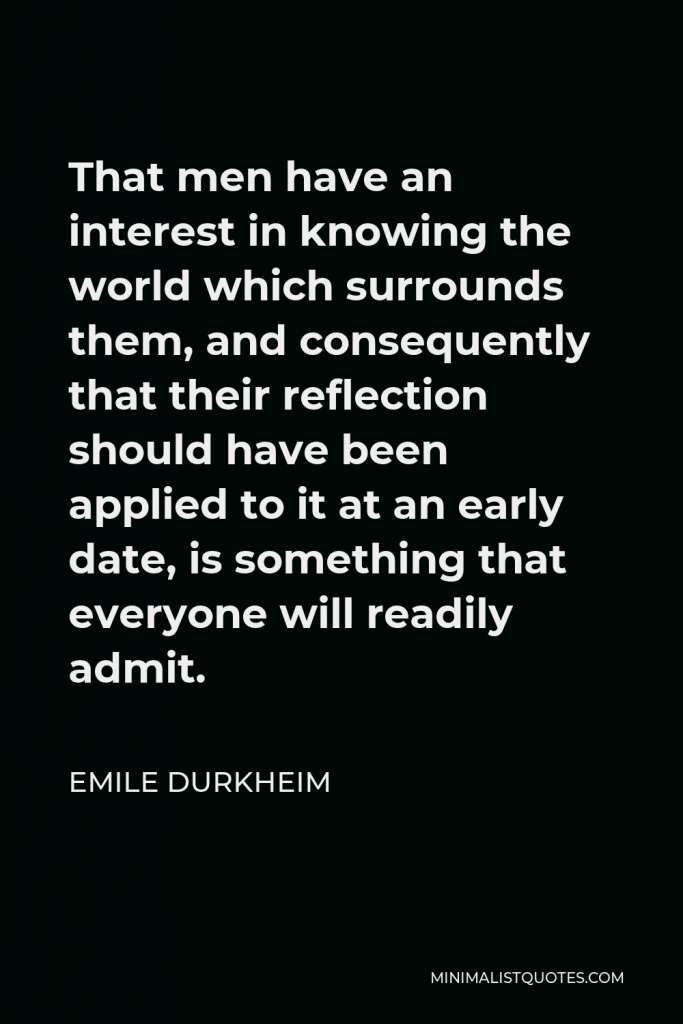

That men have an interest in knowing the world which surrounds them, and consequently that their reflection should have been applied to it at an early date, is something that everyone will readily admit.
EMILE DURKHEIM -





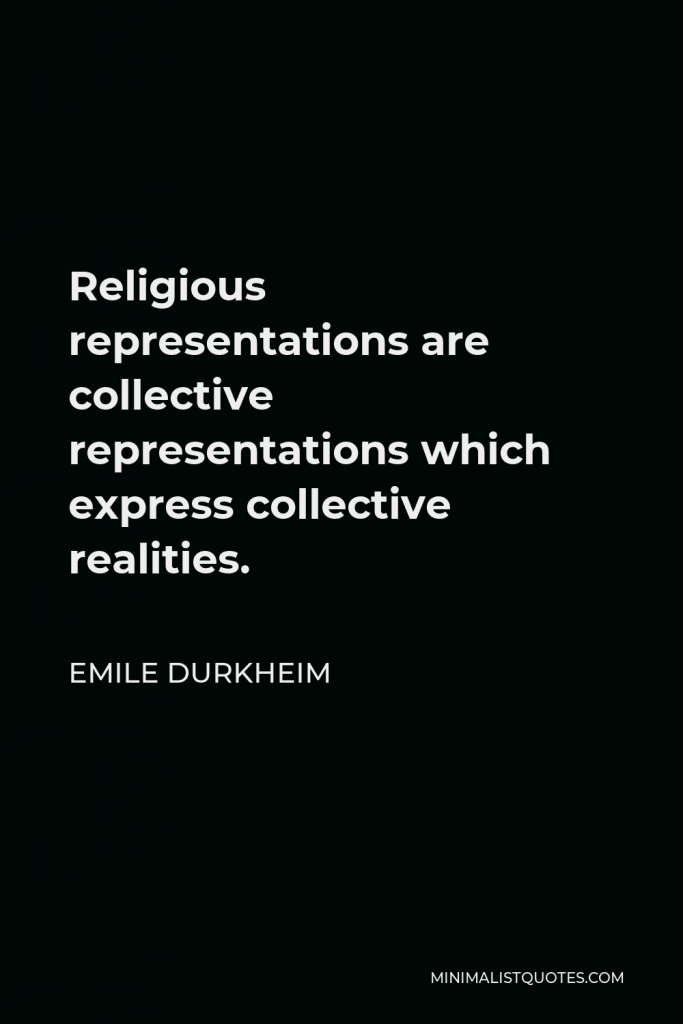

Religious representations are collective representations which express collective realities.
EMILE DURKHEIM -





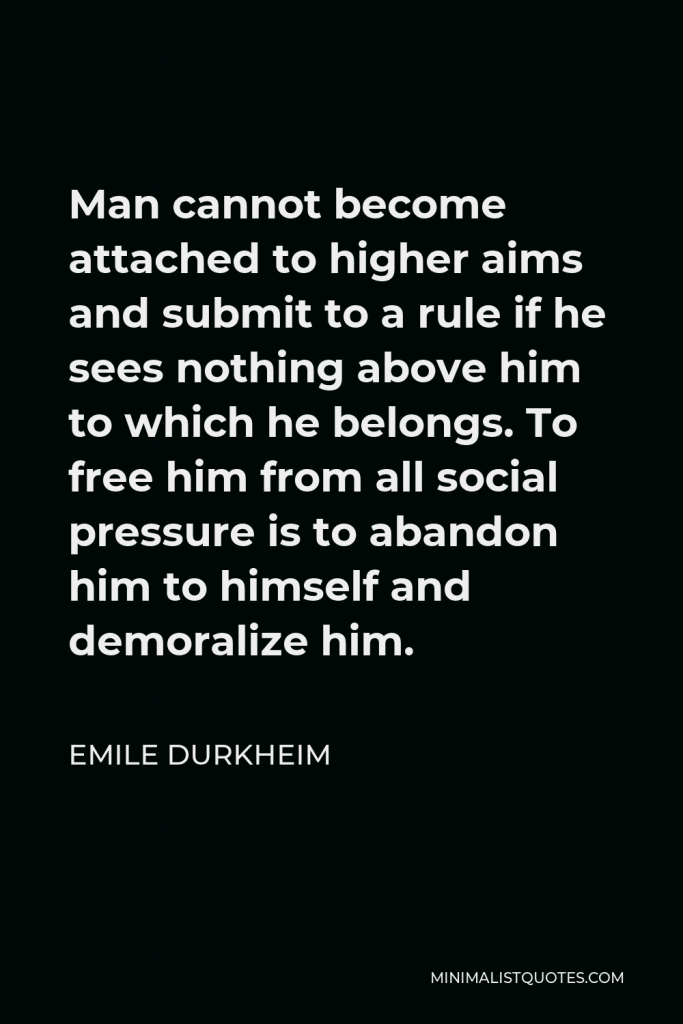

Man cannot become attached to higher aims and submit to a rule if he sees nothing above him to which he belongs. To free him from all social pressure is to abandon him to himself and demoralize him.
EMILE DURKHEIM -





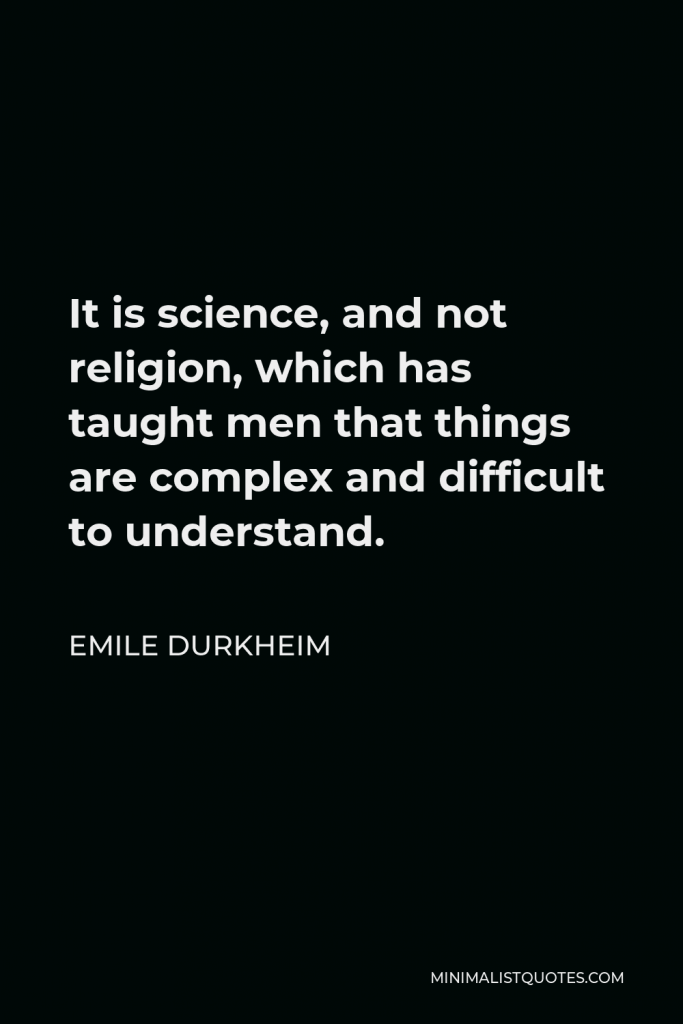

It is science, and not religion, which has taught men that things are complex and difficult to understand.
EMILE DURKHEIM -





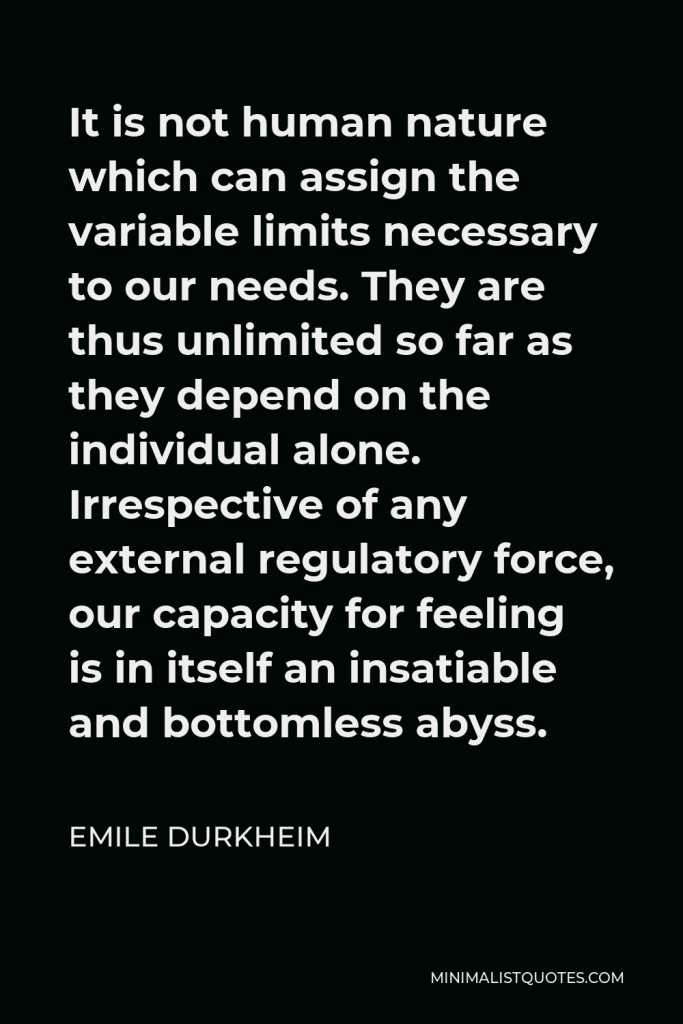

It is not human nature which can assign the variable limits necessary to our needs. They are thus unlimited so far as they depend on the individual alone. Irrespective of any external regulatory force, our capacity for feeling is in itself an insatiable and bottomless abyss.
EMILE DURKHEIM -





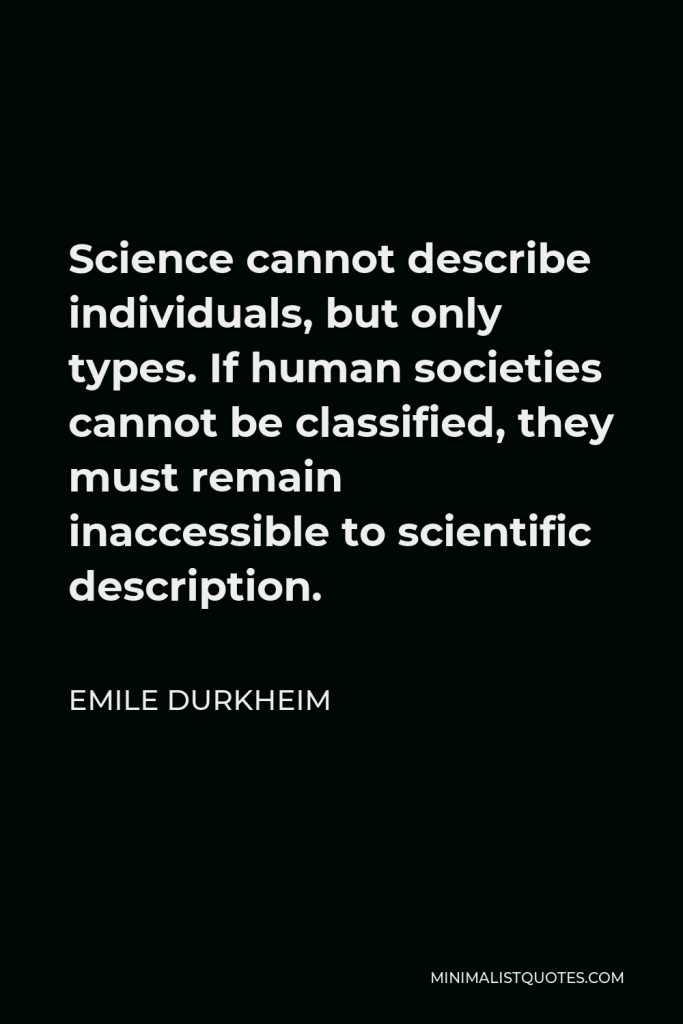

Science cannot describe individuals, but only types. If human societies cannot be classified, they must remain inaccessible to scientific description.
EMILE DURKHEIM -





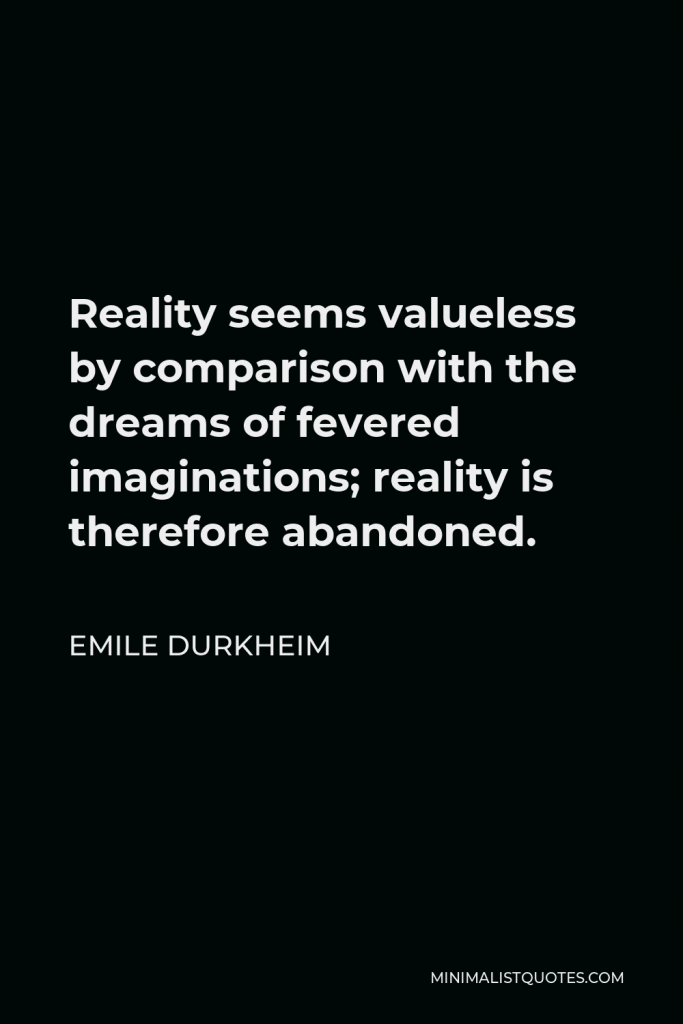

Reality seems valueless by comparison with the dreams of fevered imaginations; reality is therefore abandoned.
EMILE DURKHEIM -





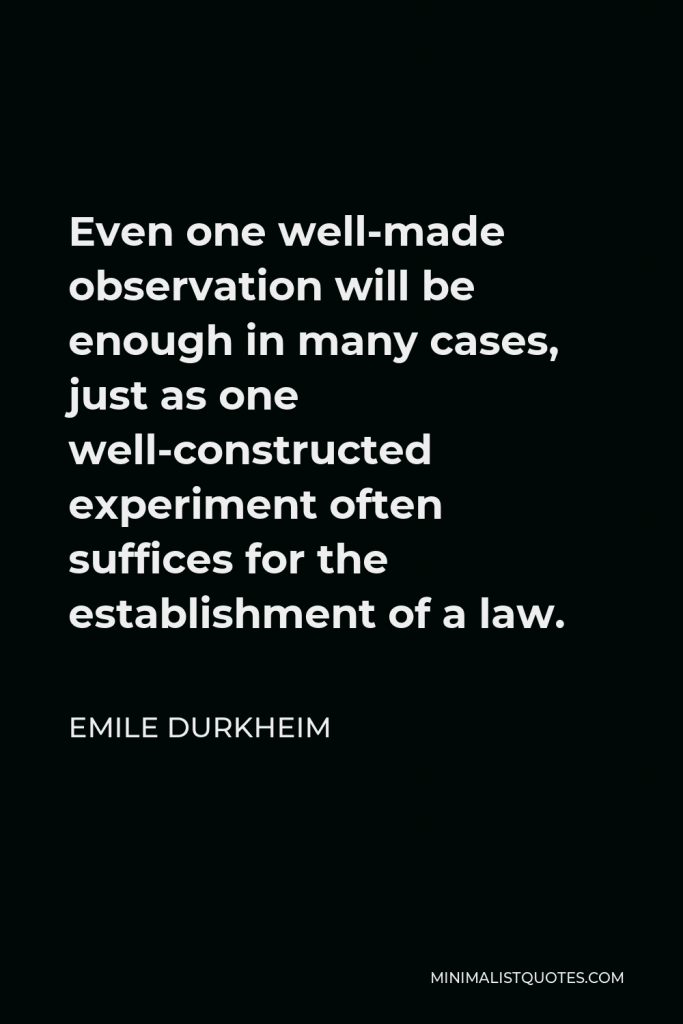

Even one well-made observation will be enough in many cases, just as one well-constructed experiment often suffices for the establishment of a law.
EMILE DURKHEIM -





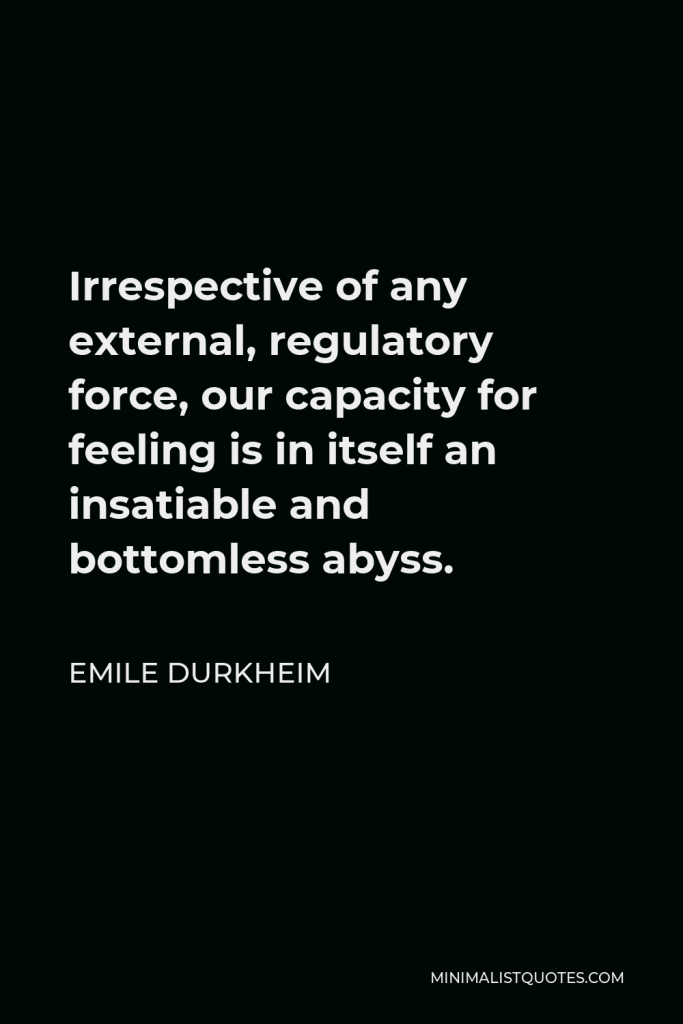

Irrespective of any external, regulatory force, our capacity for feeling is in itself an insatiable and bottomless abyss.
EMILE DURKHEIM -





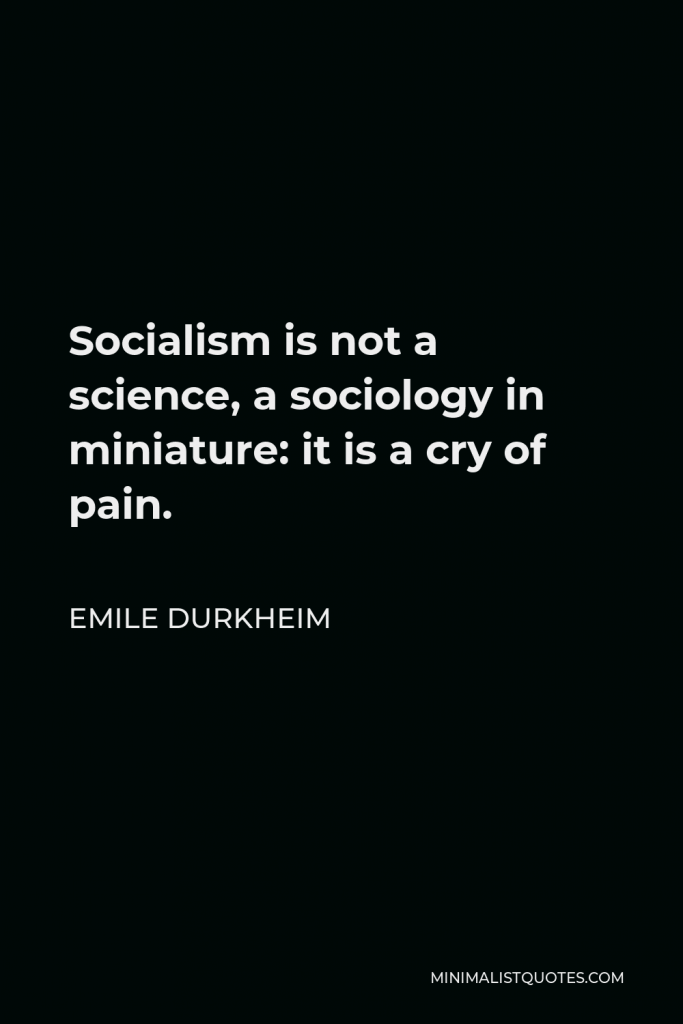

Socialism is not a science, a sociology in miniature: it is a cry of pain.
EMILE DURKHEIM -







Faith is not uprooted by dialectic proof; it must already be deeply shaken by other causes to be unable to withstand the shock of argument.
EMILE DURKHEIM -





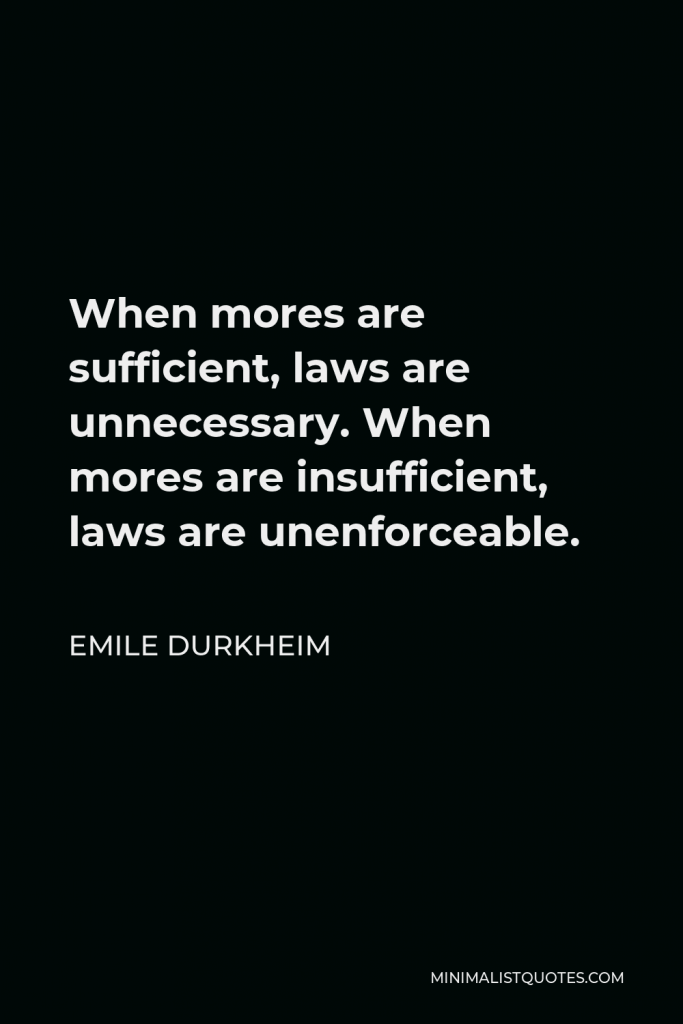

When mores are sufficient, laws are unnecessary. When mores are insufficient, laws are unenforceable.
EMILE DURKHEIM -





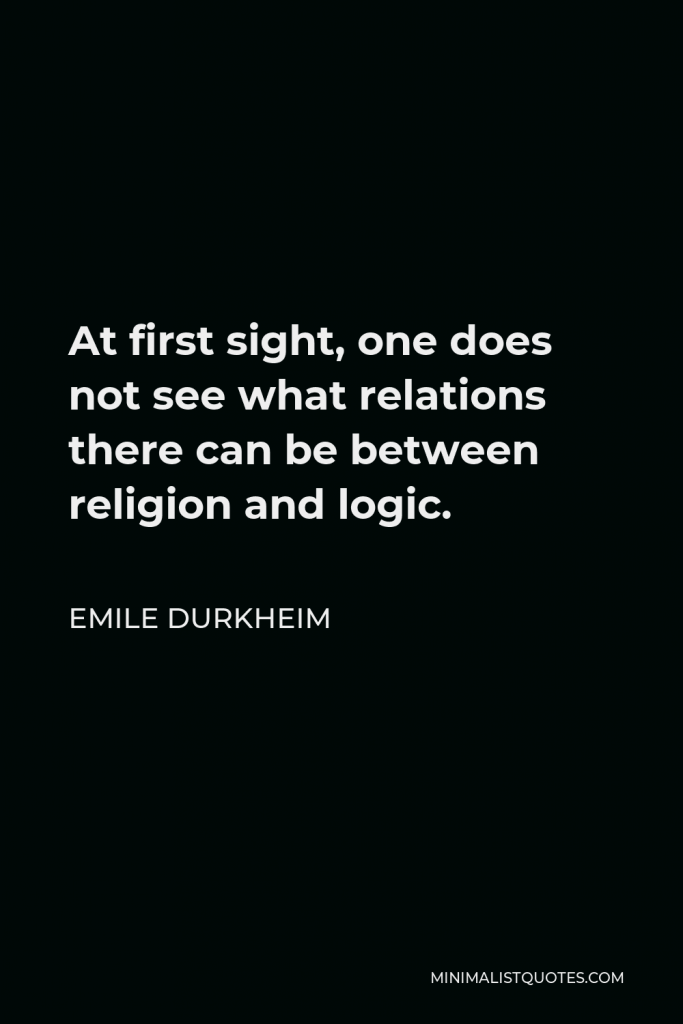

At first sight, one does not see what relations there can be between religion and logic.
EMILE DURKHEIM -







We do not condemn it because it is a crime, but it is a crime because we condemn it.
EMILE DURKHEIM







